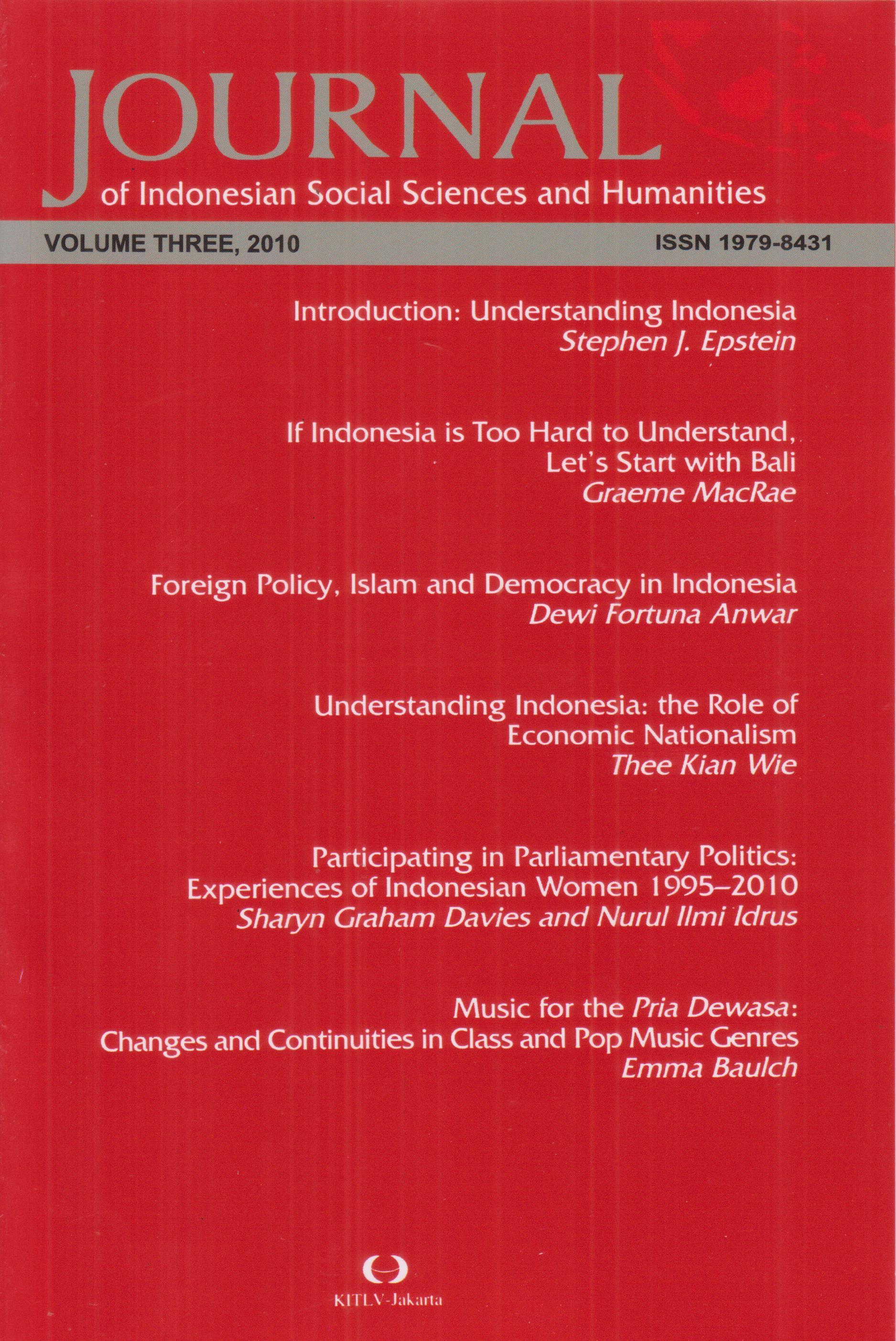Foreign Policy, Islam and Democracy in Indonesia
Abstract
The relations between Islam and Democracy in Indonesia and their implications for the country’s foreign policy have attracted considerable attention in recent years. In the early years of his first presidential term, Susilo Bambang Yudhono introduced the concept of Indonesia’s international identity, that is, as a country in which Islam, democracy and modernity go hand in hand. In the post-9/11 international context, in which perceptions of Islam are largely negative, Indonesia’s special attributes as the largest Muslim-majority country and the world’s third largest democracy have special values. The international community, especially Western countries, has looked to Indonesia to provide an alternative face of Islam in the midst of rising religious extremism and terrorism. Indonesia, however, still faces many challenges in realising its aspirations to be a bridge between the Islamic world and the West, and as an alternative model within the Islamic world. Frequent acts of religious intolerance have marred Indonesia’s claim as a moderate Islamic force while Indonesia has generally been perceived to lie in the periphery of the Islamic world.
References
Anwar, Dewi Fortuna. (1991). Indonesia in ASEAN. Foreign policy and regionalism. Singapore: Institute of Southeast Asian Studies.
Effendy, Bachtiar. (2003). Islam and the state in Indonesia. Singapore: Institute of Southeast Asian Studies.
Feith, Herbert. (1962). The decline of constitutional democracy in Indonesia. Ithaca: Cornell University Press.
Mietzner, Marcus. (2009). Military politics, Islam and the state in Indonesia: from turbulent transition to democratic consolidation. Singapore: Institute of Southeast Asian Studies.
Noor, Firman. (2010). ‘Secercah Harapan bagi Pendewasaan Politik Bangsa’. Seputar Indonesia, 10 March 2010.
Perwita, Anak Agung Banyu. (2007). Indonesia and the Muslim world. Islam and secularism in the foreign policy of Soeharto and beyond. NIAS Report.
Sukma, Rizal. (1995). ‘The evolution of Indonesia’s foreign policy: an Indonesian view’. Asian Survey, 35 (3): 304–315; URL: http://www.jstor.org/stable/2645547 Accessed: 10/03/2010 00:53.
--------. (2003). Islam in Indonesian foreign policy. London and New York: RoutledgeCurzon.
--------. (2010). ‘Insight: Debating Indonesia’s Global Role’. Jakarta Post. Thursday, 11 March 2010.
Weinstein, Franklin B. (1976). Indonesian foreign policy and the dilemma of dependence. Ithaca: Cornell University Press.
Wirajuda, Hassan. (2007). ‘Transkripsi Press Briefing Menlu RI mengenai Persiapan Keikutsertaan Indonesia dalam Konferensi di Annapolis’. Jakarta, 23 November 2007.
Yudhoyono, Susilo Bambang. (2005). Speech before the Indonesian Council on World Affairs (ICWA). Jakarta, 20 May 2005.
Downloads
Published
Issue
Section
License

This work is licensed under a Creative Commons Attribution-NonCommercial-ShareAlike 4.0 International License.
Authors who publish with this journal agree to the following terms:
1. Authors retain copyright and grant the journal right of first publication with the work simultaneously licensed under an Attribution-ShareAlike 4.0 International (CC BY-SA 4.0) license. This license allows others to remix, adapt, and build upon the work, as long as they credit the author and license their new creations under the same terms.
2. Authors may enter into separate, additional contractual arrangements for the non-exclusive distribution of the journal’s published version of the work (e.g., posting it to an institutional repository or including it in a book), provided there is an acknowledgment of its initial publication in this journal.
3. Authors are permitted and encouraged to post their work online (e.g., in institutional repositories or on their personal website) prior to and during the submission process, as this can lead to productive exchanges and increase citations of the published work (See The Effect of Open Access ).


















